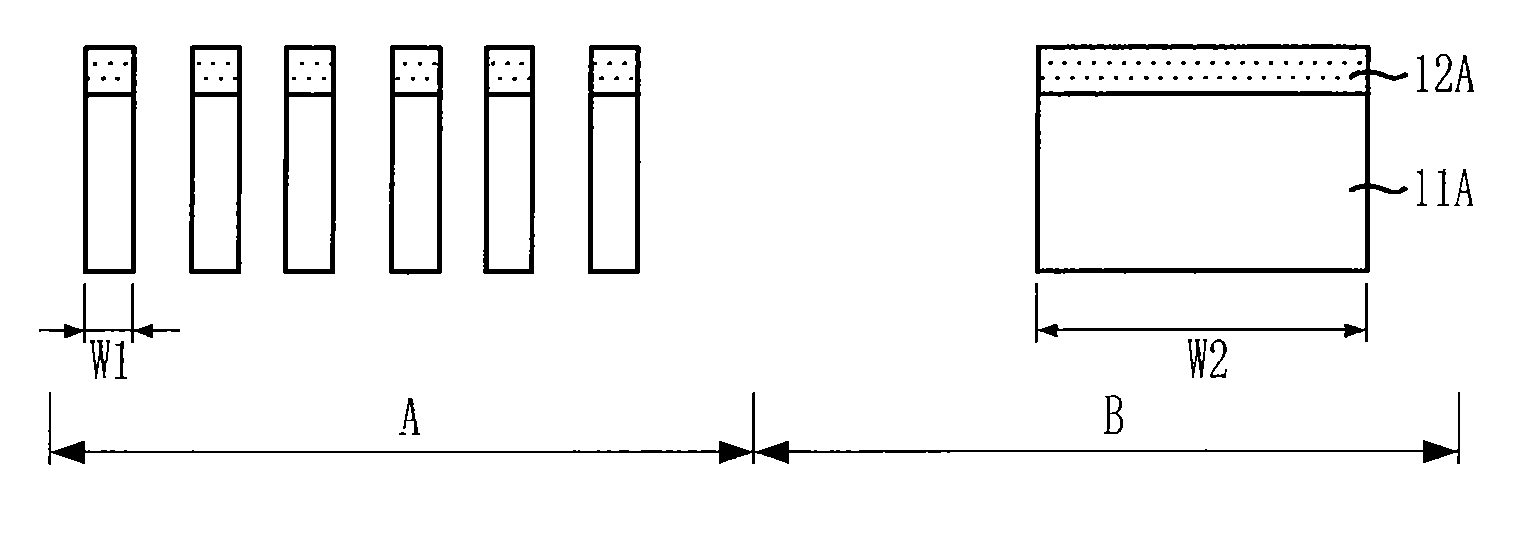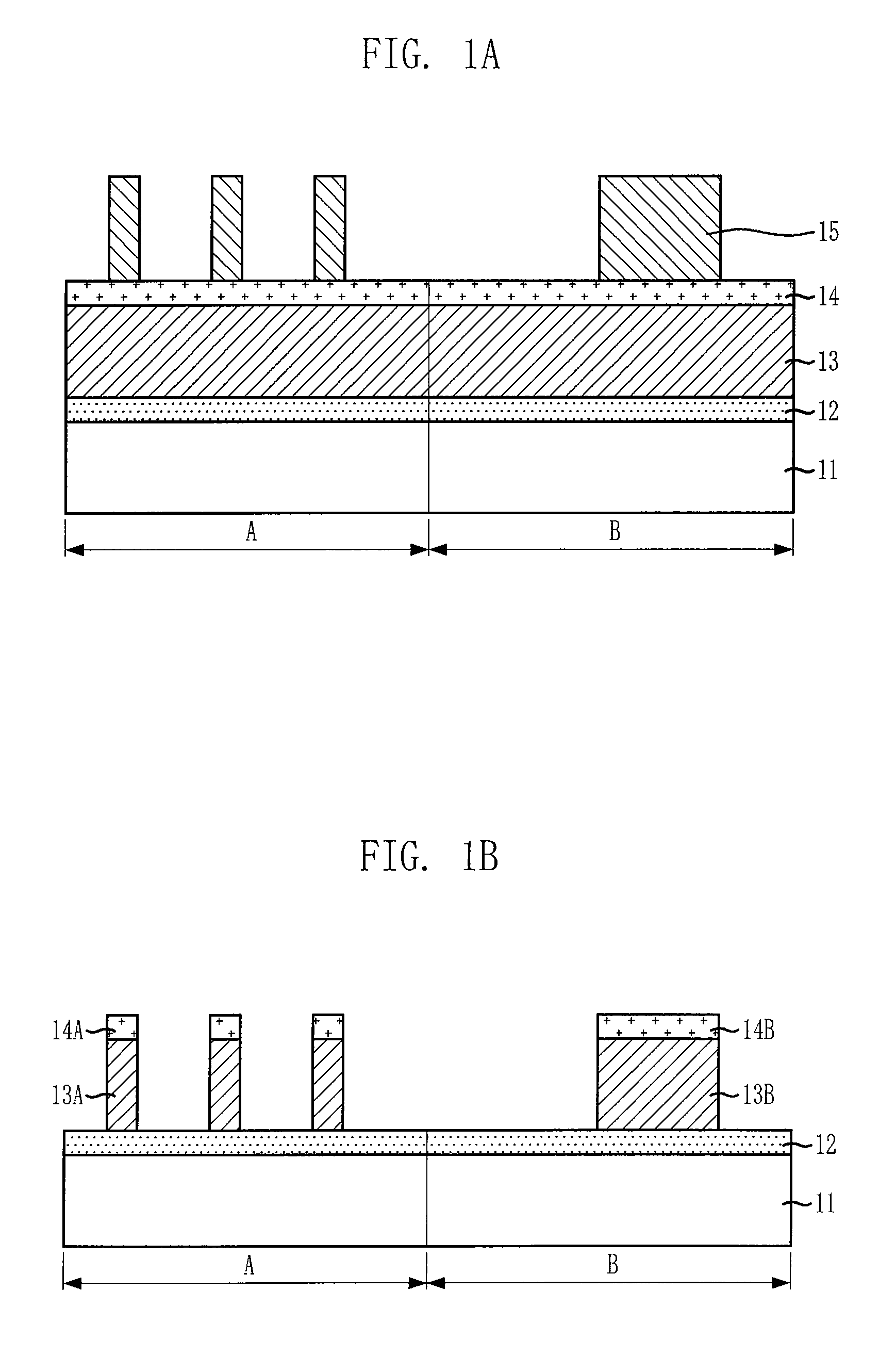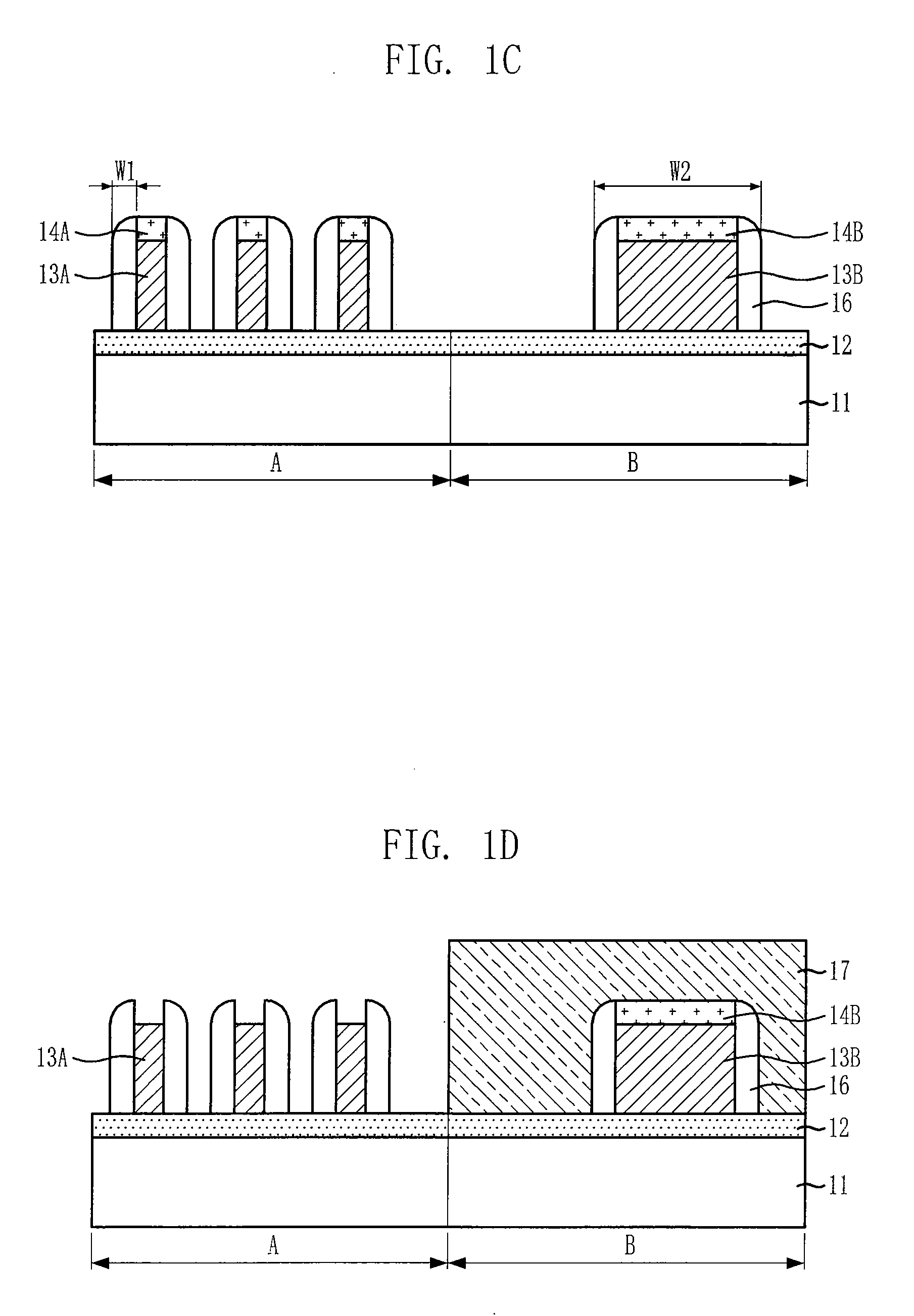Method for forming pattern in semiconductor device
a semiconductor device and pattern technology, applied in semiconductor devices, solid-state devices, decorative arts, etc., can solve the problems of inability to incorporate a device having a micro pattern of 40 nm or less, semiconductor devices may not include uniformly sized patterns, and disadvantages, etc., to achieve small size, improve process precision, and simplify the process
- Summary
- Abstract
- Description
- Claims
- Application Information
AI Technical Summary
Benefits of technology
Problems solved by technology
Method used
Image
Examples
Embodiment Construction
[0019]Embodiments of the present invention relate to a method for forming a pattern in a semiconductor device.
[0020]In accordance with an embodiment of the present invention, process precision is improved and the process is simplified by using a positive spacer patterning technology in a region where patterns have a small size while using a negative spacer patterning technology in a region where patterns have a large size.
[0021]FIGS. 1A to 1H illustrate cross-sectional views of a method for forming a pattern in a semiconductor device in accordance with an embodiment of the present invention. This embodiment assumes that etch-target patterns having a first line width W1 (FIGS. 1C and 1H) are required to be formed in a first region where patterns have a small size, and other etch-target patterns having a second line width W2 (FIGS. 1C and 1H) are required to be formed in a second region where patterns have a larger size than those in the first region, wherein the second line width W2 ...
PUM
| Property | Measurement | Unit |
|---|---|---|
| size | aaaaa | aaaaa |
| width | aaaaa | aaaaa |
| structure | aaaaa | aaaaa |
Abstract
Description
Claims
Application Information
 Login to View More
Login to View More - R&D
- Intellectual Property
- Life Sciences
- Materials
- Tech Scout
- Unparalleled Data Quality
- Higher Quality Content
- 60% Fewer Hallucinations
Browse by: Latest US Patents, China's latest patents, Technical Efficacy Thesaurus, Application Domain, Technology Topic, Popular Technical Reports.
© 2025 PatSnap. All rights reserved.Legal|Privacy policy|Modern Slavery Act Transparency Statement|Sitemap|About US| Contact US: help@patsnap.com



